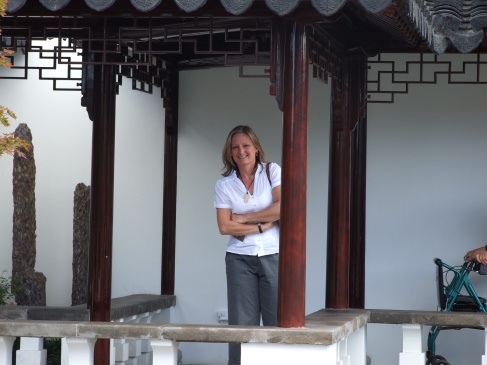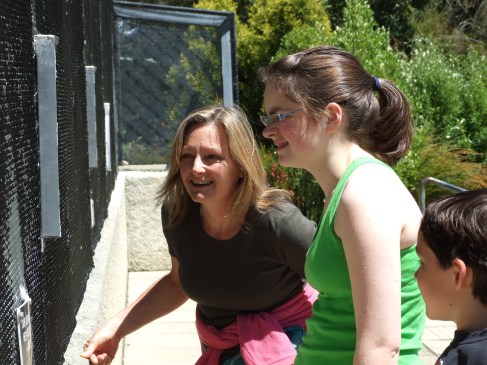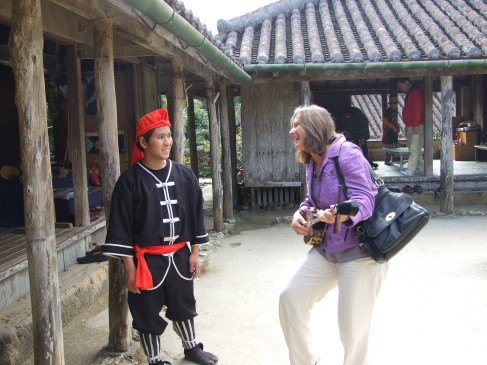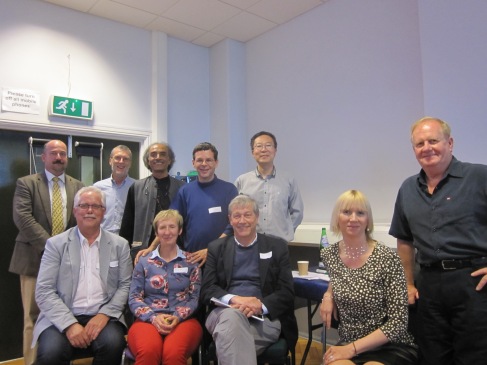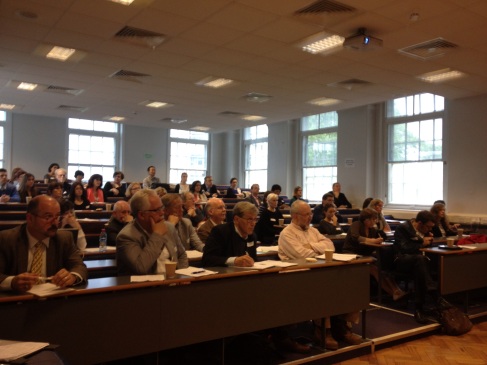We are pleased to announce that attendees of the 14th International Conference on Language and Social Psychology (ICLASP14) will be eligible for a discounted rate at the Ala Moana Hotel. This rate applies for 3 days prior to and after the conference.
Author Archives: Daniel Angus
JLSP goes to 6 issues per annum
The Journal of Language and Social Psychology, which had an encouraging leap in its Impact Factor last year, is delighted to announce that it is going 6 Issues per annum starting 2014. This means that we can entertain more proposals for guest edited Special Issues. Please send proposals to the Editor at: HowieGiles@cox.net
The 14th International Conference on Language and Social Psychology (ICLASP)
The 14th International Conference on Language and Social Psychology (ICLASP)
to be hosted by the University of Hawai`i at Mānoa
Venue: Honolulu, Hawai`i
Date: June 19th – 22nd, 2014
This conference brings together communication scholars who investigate language in many social contexts, using quantitative or qualitative methods. Research in this field is multi-disciplinary, with particularly strong contributions from communication studies and communicology, social psychology, sociolinguistics, and applied linguistics. It focuses on the perceptions, motivations, norms and contextual factors that influence interactants in the communication process, as well as on language and communication behavior and its consequences. For more detail about language and social psychology (LASP), visit the International Association of Language and Social Psychology (IALSP) website: http://www.ialsp.org/.
Conference Highlights
The conference will highlight the work and ideas of several distinguished keynote speakers, including Professor Hans J Ladegaard (Hong Kong Baptist University), Professor Dan Landis (University of Hawai`i at Hilo), and Professor Min-Sun Kim (University of Hawai`i at Mānoa). The conference will provide:
- Innovative scholarly exchange opportunities;
- Shared meals, receptions, and the opportunity to experience the beautiful tropical beaches and hinterland of the island of O`ahu, along with the uniquely varied cultures, languages, and peoples of Hawai`i;
- As always, everything you have come to expect from an ICLASP conference!
The Venue
ICLASP 14 will convene in Honolulu on the southern shore of O`ahu, which means, appropriately, the Gathering Place. Honolulu is the economic and population center of Hawai`i. From our conference headquarters at the Ala Moana Hotel you can walk to beaches, parks, shopping, or the world famous Waikiki Beach. Pirouette 360 degrees and you will see blue ocean, green mountains, and cityscape with 21st century architecture. Driving excursions can take you back in time to the events of Pearl Harbor or to the world class surfers’ destination of the North Shore. There are endless hikes through rain forests or up mountain ridges to the most breathtaking sights of mountain and ocean you can imagine. If you choose to extend your time in the islands beyond ICLASP, find time to visit one or more of the other Hawaiian Islands. Each is unique with their own attractions, their own beauty. ICLASP 14 will be held in June when the Trade Winds keep the Islands cool and daily temperature averages 27°. Dress for Paradise!
Call for Symposia and Papers
To receive full consideration, submissions must be received before February 28th, 2014. Submissions received after that date may be accepted on a space available basis.
- Proposals should be submitted via https://www.easychair.org/conferences/?conf=iclasp14
- All proposals received by February 28th will be reviewed, and corresponding authors will be notified of the status of their submissions by the end of March, 2014. Submissions received after February 28th will be reviewed on an ongoing basis if space is available.
- All submissions must include complete contact information for all authors, along with an indication of the corresponding author.
- All submissions must be in English.
- Submissions will be accepted in two forms: Symposia or individual abstracts (see below for details).
Symposia submissions should be a single pdf file containing:
- The name and complete contact information for the person responsible (corresponding author);
- A 250 word (maximum) introduction to the theme and content of the symposium;
- An indication of the symposium’s length (assuming 4 papers per 1.5 hour session), and the roles of all participants (chair, discussant, presenting author, co-author);
- A list of the individual presentations in order, including the title and abstract for each oral presentation (120 words maximum), presenting author, and the name, affiliation, and email address of each presenter. A typical symposium will include at least 4 presenters.
- Upload as a ‘paper’ in the easychair system via the link above.
Individual paper submissions should be a single file containing:
- The names and complete contact information for all authors;
- A clear indication of which author(s) will present the paper;
- The title of the paper;
- Either an extended abstract of the paper (180-250 words in length), or an abstract (120 words maximum) and the full paper;
- An indication of authors’ preference for an oral presentation or an interactive (poster) presentation.
- Upload as an ‘abstract’ in the easychair system via the link above. Please also select ‘abstract only’ in the upload paper box.
Tamar Murachver (30 August 1958 – 22 January, 2013)
Dr Tamar Murachver, a member of the IALSP executive committee and Senior Lecturer at the University of Otago, died earlier this year, aged 54. A native of Orange County, California, Tamar completed her undergraduate degree at CSU Fullerton in 1983 with a perfect GPA and two published chapters in psycholinguistics with Art Graesser. After completing her PhD in developmental psychology with Jean Mandler at UC San Diego, Tamar immigrated to New Zealand in 1990 to take up a post as Lecturer in the psychology department at the University of Otago. Tamar continued working in developmental psychology, but it was at Otago in the early 90s that she was inspired by the language work of her colleague, Sik Hung Ng. After Ng left Otago, Tamar began teaching in the social psychology of language, and by the late 90s was supervising PhD students on topics related to Communication Accommodation Theory. One research study from these PhDs was presented at ICLASP in Cardiff in 2000, starting her association with IALSP. At the following ICLASP, hosted in Hong Kong by Sik Hung Ng, three of her current or former students presented. However, it was not until 2004 that Tamar herself was able to attend ICLASP.
As a researcher, Tamar gained an international reputation in the 1990s and this century for her work on the developmental, social, and cognitive aspects of intergroup language. Her research interests included the development of communication skills, the use of language in forming and maintaining social groups – a core area of intergroup communication – and the impact of language on cognition. She is especially known for her clever experimental research on gender and language, and whether it is gender per se or a facilitative communication style that evokes impressions of femininity. We owe Tamar for showing the great influence of style, and the dynamic effect of language in face-to-face and virtual communication. Much of this work was done with her PhD students, and she and they published in leading journals, including many papers in the Journal of Language and Social Psychology. Her research skill and critical mind will leave a lasting legacy.
Tamar was an enthusiastic and supportive supervisor. She developed a professional and personal relationship with her students. Meetings were not just a forum to discuss research, but an opportunity to share stories and life experiences, and for students to hear stories about her family, and to receive enough encouragement or resources to foster independent research. Students left these meetings with more understanding of their research topic, and oftentimes, of many other things. Tamar encouraged, by demonstration and discussion, the growth of ethical thought and behaviour in her students. She encouraged her students to discuss ethical aspects of an experimental design critically and comprehensively, reminding them that an empirically perfect experimental design is worthless if it is ethically unsound.
Tamar supervised 12 PhDs and 29 Masters to completion, and over 80 honours research projects. Her research interests were many, and often student-led. She engaged readily with students’ ideas as well as her own, leading her into computer-mediated communication, communication in people with a history of partner violence, risk-taking, development of theory of mind and representational thought, parenting styles, moral development, and identity. On more than one occasion, her students struggled to find the coherent narrative linking all the research being conducted in her lab. One theme underpinning many projects was her very strong belief in social justice, which she would often link back to previous projects. For example, having previously investigated gender roles, and attitudes towards different accents, and later, having been introduced to implicit measures by one student who wanted to assess implicit gender roles, Tamar then had an honours student explore the development of implicit ethnic stereotyping the following year.
Tamar also played a strong and memorable role in undergraduate teaching. Tamar’s role in first year psychology taught at the University of Otago was to introduce students to areas of intelligence, thought, and language. The foci of her lectures were based on her areas of interests in language development and acquisition, gender differences in language, and the relationship between language and cognition. Once again, Tamar’s personal and professional experiences illuminated her lectures. Her discussions of the development of language and cognition were informed just as much by her parenting experiences as her parenting experiences were informed by her research.
However, the lecture hall was not the first place a student would meet Tamar. During Orientation week when students require advice and authorisation for Course Approval, Tamar would be one of the smiling faces at the Psychology Table, ready with her red pen and some practical advice for first and second year students. Her dedication to ensuring that first year psychology students received a firm foundation in Psychology extended beyond her lectures. She served as the Laboratory Co-ordinator for the two introductory psychology papers from 1992 until she became ill in 2012. Tamar was enthusiastically engaged in the development and structuring of the laboratory teaching content. The first year Psychology labs taught today were very much informed by Tamar’s understanding and knowledge of her areas of interest (thought, language, and cognition), as well as a broader scope of Psychology, ranging from brain and behaviour to group processes. As with her graduate students, she was a supportive co-ordinator for the demonstrators, imparting class and life lessons through anecdotes and examples she provided during meetings.
Despite an often heavy workload, Tamar always engaged with other activities and was devoted to her family. She was active in the university and broader community, including serving on a Kindergarten Committee and the University’s Human Ethics Committee, being an active member of the university staff union, and playing keyboard in the Psychology Department band Raw Shark. She continued to manage her youngest son’s soccer team, even as she was fighting cancer. Tamar is survived by her four children Jessica, Natasha, Neil and David, and her husband Brent.
We thank James Green, Sabrina Goh and Charmaine Strickland, who are Tamar’s former students, for writing this tribute.
The IALSP Executive will be putting in place an Award in Tamar’s memory. Details will be finalised soon.
September TOC for Journal of Language and Social Psychology
Howard Giles, Editor of JLSP, has sent us the contents for the September issue.
Did you know that the Impact Factors have significantly increased over last year, close to 200 submissions a year with a 17% acceptance rate, and going SIX Issues, starting 2014.
ICA-IALSP Pre-conference a success!
’Multilingual & Multicultural Communication’ Day at SOAS (Univ of London) -17/6/13
On the 17th June, 2013, a (rare) sunny and warm London day, over 80 practitioners, researchers, students and others from different parts of the world, working across disciplines, discussed wide ranging issues under the theme of ‘Multilingual & Multicultural Communication’ (M&MC) at the Vernon Sq Campus of SOAS (University of London). A rather early beginning (8.15 registration, but with coffee & biscuits…) and a warm welcome was followed by an introduction by the co-organisers, Howard Giles (UCSB, USA) & Itesh Sachdev (SOAS, UK), who expressed concern at the parlous attention to M&MC in many areas of academic enquiry including communication studies, interpersonal and social psychology and linguistics. Lid King (TLC, UK) and Dina Mehmedbegovic (IoE, UK) began the main proceedings by presenting on urban diversity with a special focus on London (UK). Reinier Salverda and Cor van Der Meer (Mercator, Fryslan, The Netherlands) then discussed the import of regional and minority languages with data on trilingual education in Fryslan as well opportunities using new media. Francois Grin (Geneva, Switzerland) provided a critical economic analysis of lingue franche, while emotions were stirred, and expressed, multilingually by Jean Marc Dewaele’s (Birkbeck, UK) presentation (he even showed us this – may be offensive to some… : http://www.japansubculture.com/wp-content/uploads/2012/01/Image.jpg). Following a delicious vegetarian lunch (according to feedback & provided by a SOAS Students Union team), the afternoon’s proceedings shifted to M&MC across time and space with Li Wei (Birkbeck, UK) focussing on the import of the diaspora, while Anne Pauwels (SOAS, UK) explored cyber-space. Rupert Brown (Sussex, UK), while sidestepping issues of language, provided an important intergroup perspective on acculturation (relevant for modelling M&MC). The task of modelling M&MC was taken on in the final session by the co-organisers, and Howard Giles dynamically presented a wide range of models that culminated in arguing for the importance of integrating notions of cosmopolitanism in current theorising and future research. The final panel discussion proved to be lively and stimulating enough for most of the participants to continue their deliberations more informally at a convivial reception at SOAS (some even stayed long enough for spicy vegetarian Ethiopian fare nearby in London!). Sarah Cartwright (merci!) was the unofficial photographer, while Imke Djouadj, Ellen Foote & Nadia Sarkhoh made easy work of the administrative aspects (danke shan, eskerre-kasko & shukran also!).
A full program from the day can be found here: pre ica programme and abstracts june 2013
Itesh Sachdev, SOAS (Univ. of London) 25/06/2013.
Thanks to sponsors: The International Association of Language & Social Psychology (IALSP); The International Communication Association (ICA) & its ‘Intergroup Communication’ chapter – as part of ICA London pre-conference; MERCATOR, Fryske Akademy (the Netherlands); Faculty of Language & Culture, SOAS, University of London.
Job Announcement: University of California, Santa Barbara (2 of 2)
FACULTY POSITION
INTERPERSONAL COMMUNICATION
Job #CMST13
UNIVERSITY OF CALIFORNIA, SANTA BARBARA
The Department of Communication invites applications for a tenure-track faculty position in the area of interpersonal communication. The search is at the level of Assistant Professor, with an anticipated start date of July 1, 2014. Candidates should be ABD (with a degree expected by June 2014) or have a Ph.D. in communication or a related field, have a strong social science background, and a record of publishing innovative scientific research. Applicants with research and teaching expertise in traditional or new areas of interpersonal communication are encouraged to apply. The successful candidate will complement one or more of the Department’s cross-cutting emphases in communication and technology, media neuroscience, evolution, globalization, family, group, health, political, legal, or intercultural communication.
Applicants should submit a cover letter highlighting qualifications, a curriculum vitae, evidence of teaching effectiveness, three letters of recommendation, and three publications to the appropriate sections of the job search website: https://recruit.ap.ucsb.edu. Questions should be directed to the Search Committee Chair, Dr. Scott Reid, at scottreid@comm.ucsb.edu or at 805-893-7847.
Department review of materials will begin on November 1, 2013.
The department is especially interested in candidates who can contribute to the diversity and excellence of the academic community through research, teaching, and service. UCSB is an Equal Opportunity/Affirmative Action employer.
Job Announcement: University of California, Santa Barbara (1 of 2)
FACULTY POSITION
OPEN AREA COMMUNICATION
Job #CMST14
UNIVERSITY OF CALIFORNIA, SANTA BARBARA
The Department of Communication invites applications for a tenured senior Associate or Full Professor faculty position, with an anticipated start date of July 1, 2014. The successful candidate will complement one or more of the Department’s core areas in interpersonal/intergroup communication, media communication, and organizational communication, and any of our cross-cutting emphases in communication and technology, media neuroscience, globalization, family, group, health, political, legal, or intercultural communication. Candidates must have a Ph.D. in Communication or related discipline and an exceptional record of scholarship. The successful candidate will be expected to assume the role of Chair for a 3-year term beginning July, 2016. Thus, administrative experience is highly desirable.
Applicants should submit a cover letter highlighting qualifications, a curriculum vitae, evidence of teaching excellence and administrative effectiveness, three publications, and a list of 3 references along with contact information to the appropriate sections of the job search website: https://recruit.ap.ucsb.edu. Questions should be directed to the Search Committee Chair, Dr. Howie Giles, at giles@comm.ucsb.edu or at 805-893-2055. The search committee will begin screening completed applications on November 1, 2013, and all materials need to be submitted before this date.
The department is especially interested in candidates who can contribute to the diversity and excellence of the academic community through research, teaching, and service. UCSB is an Equal Opportunity/Affirmative Action employer.
Postdoc required for intergroup health communication project
Postdoctoral Research Fellow
School of Medicine
The School of Medicine is a leading provider of medical education and medical research in Queensland, with the country’s largest medical degree program. The program includes graduate entry and school-leaver entry streams, and is integrated, case-based/problem based learning program. The School is a diverse enterprise operating over multiple sites, with Queensland Health and private health service providers in major partners. Geographically, the School extends throughout Queensland with major sites in Brisbane, the outer metropolitan areas, and a number of rural and remote area facilities throughout the rest of the state. The UQ medical degree is also delivered on the UQ Ipswich campus to the west of Brisbane.
The role
The School of Medicine is seeking a motivated and enthusiastic Postdoctoral Research Fellow in intergroup health communication. The successful appointee with be assisting a team of health services and health communication researchers perform research with a focus on intergroup dynamics and communication in the health care context. Publications in international peer reviewed journals, submission of grant applications, and presentations at conferences are important expectations of the position. You will be part of a multidisciplinary team at the School of Medicine (Herston Campus) and the School of Psychology (St. Lucia Campus).
The person
Applicants must possess a PhD in the field of language and social psychology. The appointee must have experience in conducting, presenting and publishing research using quantitative and qualitative designs, as demonstrated by publications in high impact journals. Knowledge of social science theory and methodology, including communication, the ability to develop ideas by reviewing literature on new subjects with the skills to supervise honours and masters students in the field of psychology within this specific program of research are all important expectations of the position.
Remuneration
This is a full-time, fixed term appointment for 3 years at Academic Level A. The remuneration package for Academic Level A will be in the range of $57,330.21 to $77,764.39 per annum, plus employer superannuation contributions of 17% (total package will be in the range $67,076 – $90,984 p.a.).
Enquiries
To discuss this role please contact Associate Professor David Hewett, on +61 7 3365 5016 ord.hewett@uq.edu.au
To submit an application for this role, use the Apply button below. All applicants must supply the following documents: Cover letter, Resume and Selection Criteria responses.
For information on completing the application process click here.
ICA London Preconference Event
Registration details have now been added
International Association of Language & Social Psychology (IALSP)
PRECONFERENCE: Multilingual and Multicultural Communication | |
The last 50 years or so has seen a variety of interdependent processes associated with globalization, including greater geographical, demographic, social and information exchange and mobility, leading to an exponential increase in contacts and communication between cultures and languages. As a result many more people, especially in large urban areas are affected daily by intercultural and multilingual contacts. This is particularly the case in large urban environments around the world where the presence of speakers of hundreds of languages is not unusual. For example, a recent article in The Economist (10/9/2011) claimed that New York City had nearly as many languages (800) as Papua New Guinea, the country often regarded as home to the highest number of languages (according to Ethnologue, around 830). London is reputedly home to several hundred languages. Recent research, including that by MERCATOR (The Fryske Akademy, The Netherlands) an independent… |
View original post 559 more words



